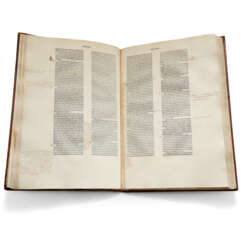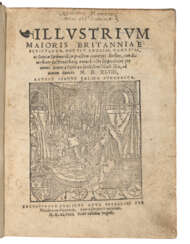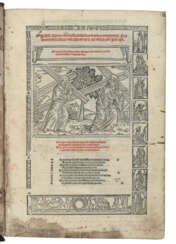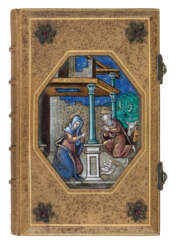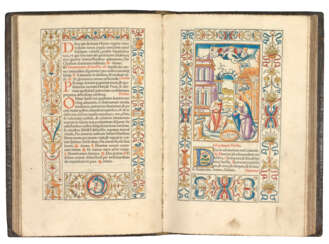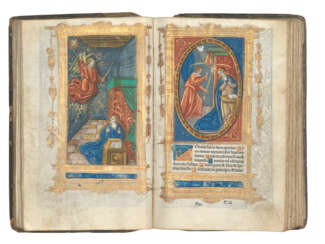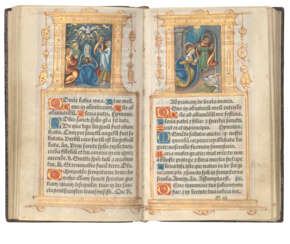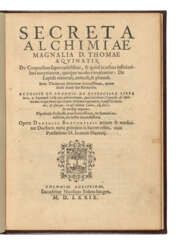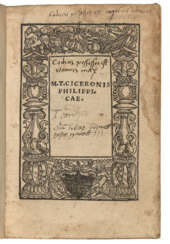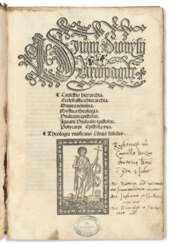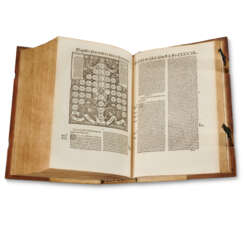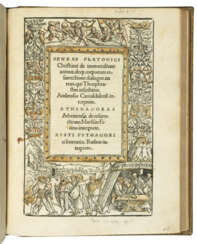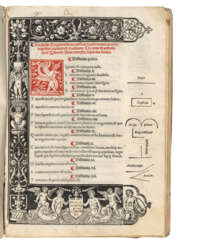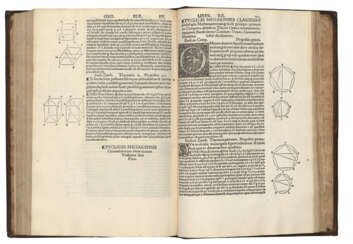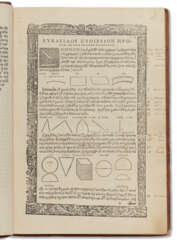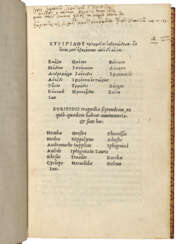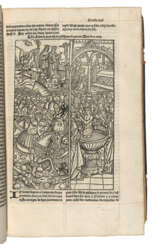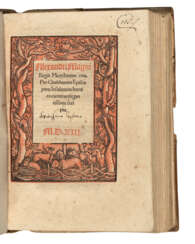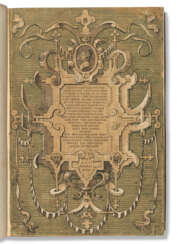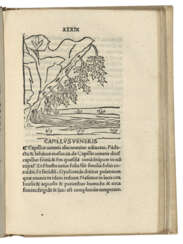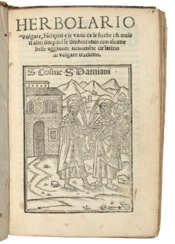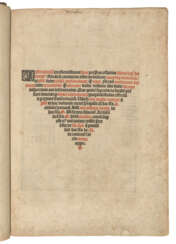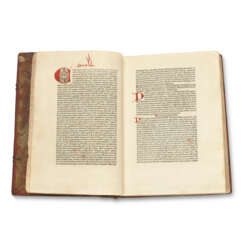
Printed books — Valuable Books and Manuscripts
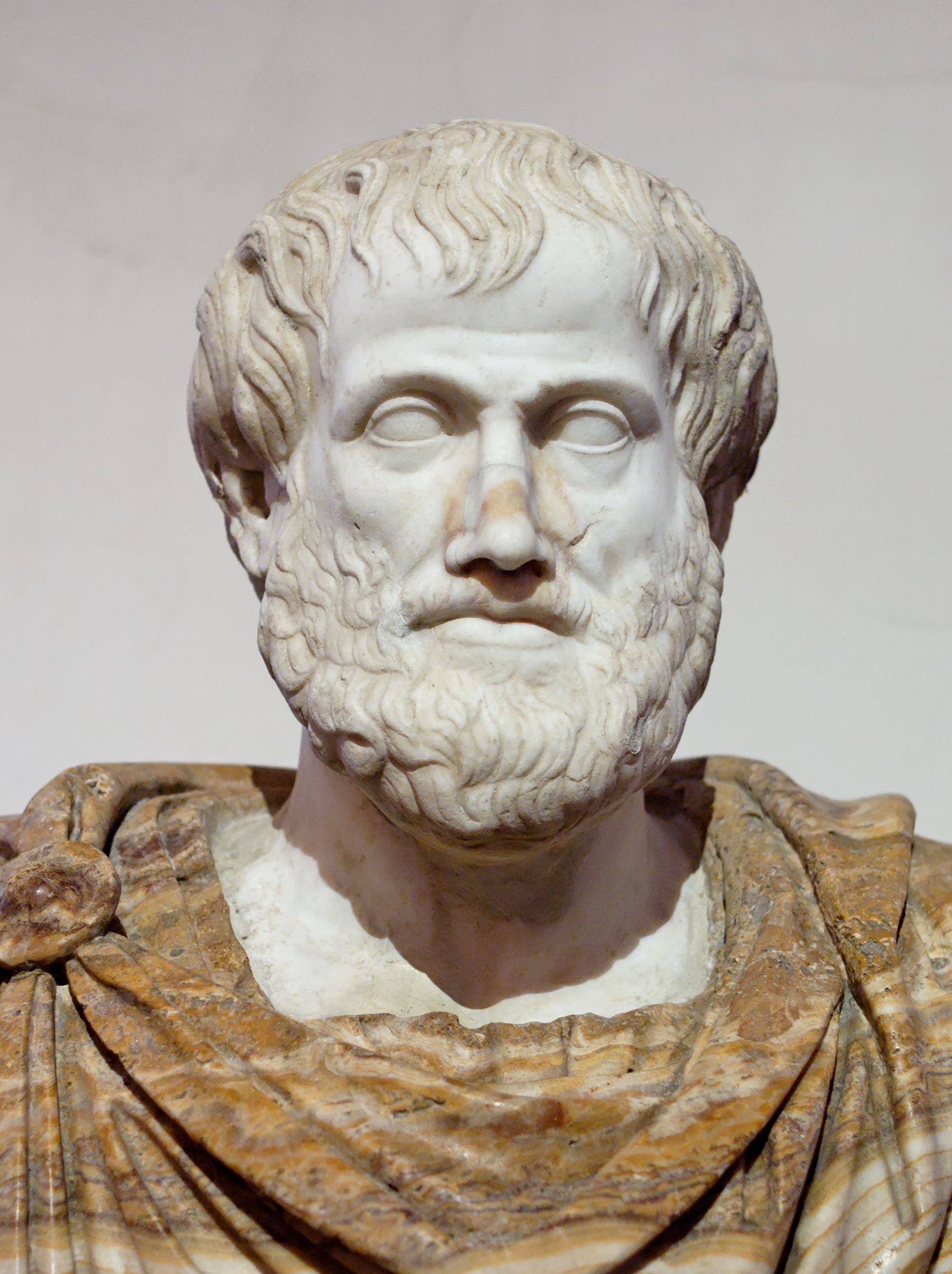
Aristotle (Greek: Ἀριστοτέλης) was an Ancient Greek philosopher and polymath, renowned for his profound impact on Western philosophy and science. Born in Stagira, Chalcidice, Aristotle's intellectual ventures spanned a multitude of subjects, including but not limited to physics, metaphysics, poetry, theater, music, logic, rhetoric, politics, government, ethics, biology, and zoology.
Educated in Plato's Academy in Athens, Aristotle distinguished himself as a scholar of vast knowledge and influence. His foundational works laid the groundwork for the development of modern science, while his teachings on logic and the syllogistic method continue to resonate in the realm of philosophy. As the tutor of Alexander the Great and the founder of the Lyceum in Athens, Aristotle's legacy extends beyond his prolific writings, with his teachings shaping medieval scholarship and influencing both Judeo-Islamic and Christian theologies.
Among Aristotle's notable works, his treatises such as "Nicomachean Ethics," "Politics," "Metaphysics," and "Poetics" have been studied for centuries. His concept of the "Golden Mean," advocating for a balanced and moderate approach to life, remains a cornerstone of ethical philosophy. His ideas on the "Prime Mover" and empirical evidence as a basis for understanding the world laid the foundation for scientific inquiry. Although only about a third of his original output has survived, Aristotle's contributions continue to be a subject of academic study and admiration.
For collectors and experts in art and antiques, the philosophical and scientific principles of Aristotle's works are not just historical artifacts but living ideas that continue to shape our understanding of the world and our place within it. His insights into the "good life" and the pursuit of happiness are as relevant today as they were in ancient Greece.
If you wish to stay informed about new product sales and auction events related to Aristotle, sign up for updates. This subscription is your gateway to the latest scholarly works, collections, and auctions connected to the great philosopher's legacy.

Aristotle (Greek: Ἀριστοτέλης) was an Ancient Greek philosopher and polymath, renowned for his profound impact on Western philosophy and science. Born in Stagira, Chalcidice, Aristotle's intellectual ventures spanned a multitude of subjects, including but not limited to physics, metaphysics, poetry, theater, music, logic, rhetoric, politics, government, ethics, biology, and zoology.
Educated in Plato's Academy in Athens, Aristotle distinguished himself as a scholar of vast knowledge and influence. His foundational works laid the groundwork for the development of modern science, while his teachings on logic and the syllogistic method continue to resonate in the realm of philosophy. As the tutor of Alexander the Great and the founder of the Lyceum in Athens, Aristotle's legacy extends beyond his prolific writings, with his teachings shaping medieval scholarship and influencing both Judeo-Islamic and Christian theologies.
Among Aristotle's notable works, his treatises such as "Nicomachean Ethics," "Politics," "Metaphysics," and "Poetics" have been studied for centuries. His concept of the "Golden Mean," advocating for a balanced and moderate approach to life, remains a cornerstone of ethical philosophy. His ideas on the "Prime Mover" and empirical evidence as a basis for understanding the world laid the foundation for scientific inquiry. Although only about a third of his original output has survived, Aristotle's contributions continue to be a subject of academic study and admiration.
For collectors and experts in art and antiques, the philosophical and scientific principles of Aristotle's works are not just historical artifacts but living ideas that continue to shape our understanding of the world and our place within it. His insights into the "good life" and the pursuit of happiness are as relevant today as they were in ancient Greece.
If you wish to stay informed about new product sales and auction events related to Aristotle, sign up for updates. This subscription is your gateway to the latest scholarly works, collections, and auctions connected to the great philosopher's legacy.
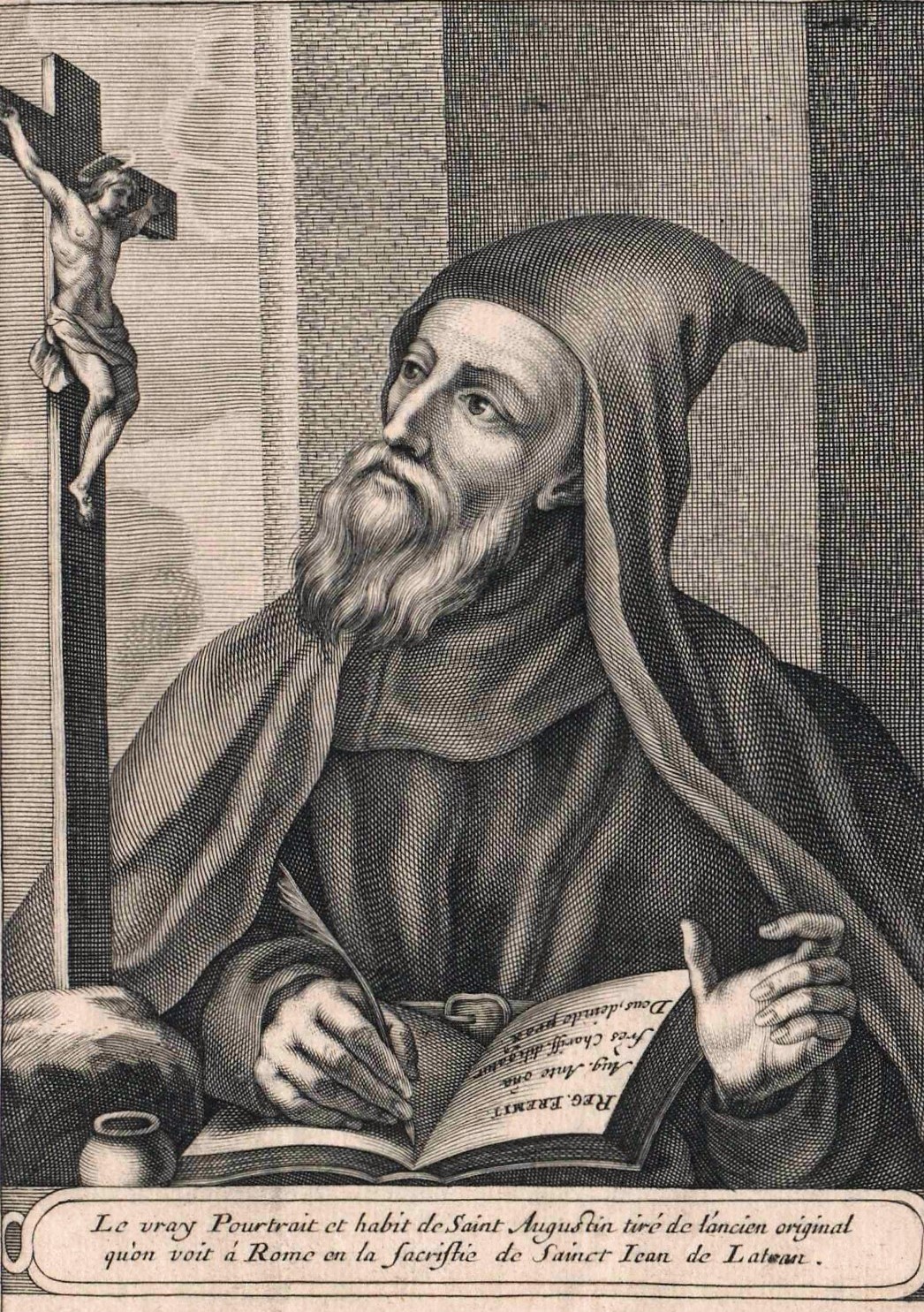
Augustine of Hippo (Latin: Aurelius Augustinus Hipponensis), also known as Saint Augustine, was a theologian and philosopher of Berber origin and the bishop of Hippo Regius in Numidia, Roman North Africa. His writings influenced the development of Western philosophy and Western Christianity, and he is viewed as one of the most important Church Fathers of the Latin Church in the Patristic Period.
Augustine is recognized as a saint in the Catholic Church, the Eastern Orthodox Church, and the Anglican Communion. He is also a preeminent Catholic Doctor of the Church and the patron of the Augustinians.
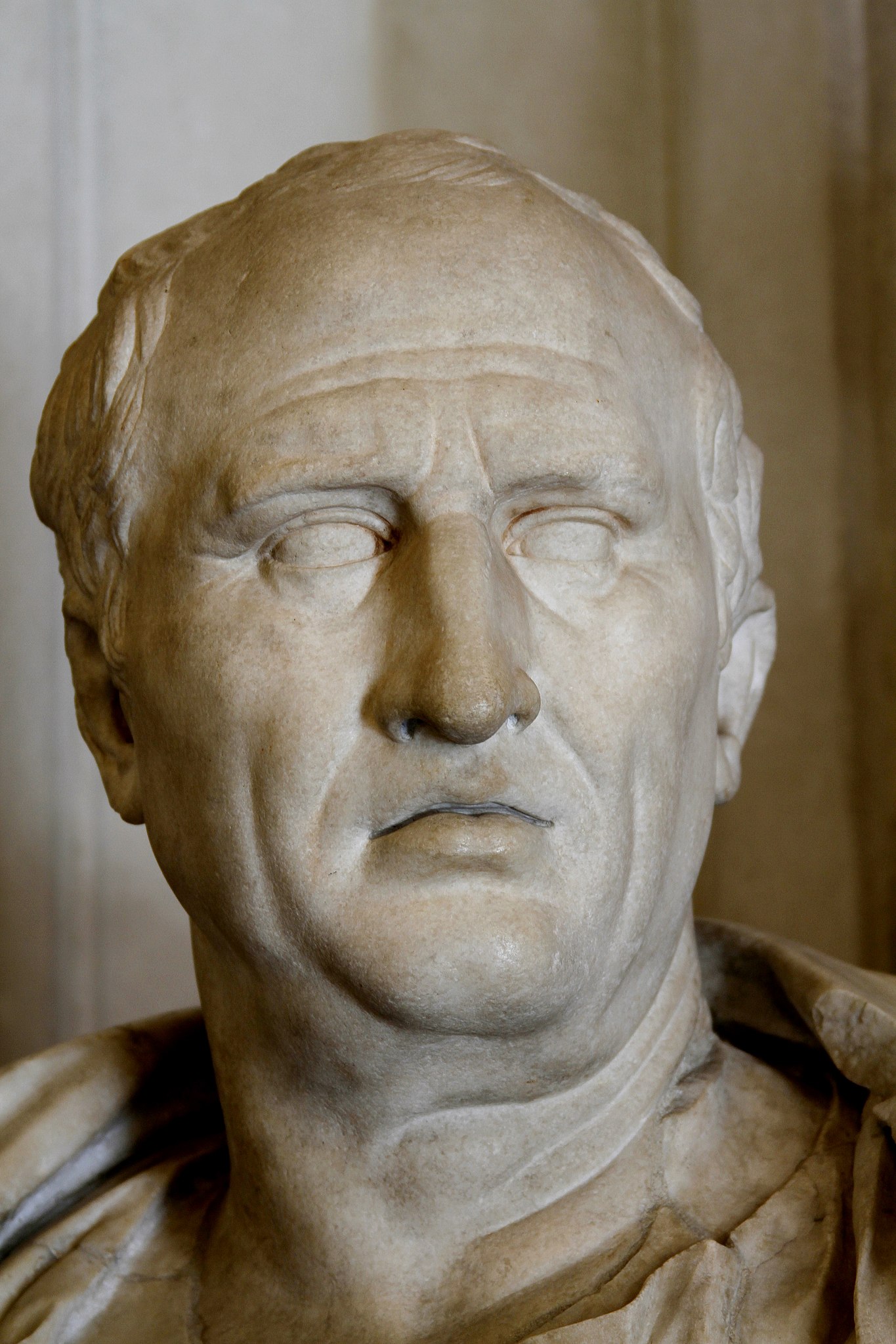
Marcus Tullius Cicero was a Roman statesman, lawyer, scholar, philosopher, and academic skeptic, who tried to uphold optimate principles during the political crises that led to the establishment of the Roman Empire. His extensive writings include treatises on rhetoric, philosophy and politics. He is considered one of Rome's greatest orators and prose stylists. He came from a wealthy municipal family of the Roman equestrian order, and served as consul in 63 BC.
His influence on the Latin language was immense. He wrote more than three-quarters of extant Latin literature that is known to have existed in his lifetime, and it has been said that subsequent prose was either a reaction against or a return to his style, not only in Latin but in European languages up to the 19th century. Cicero introduced into Latin the arguments of the chief schools of Hellenistic philosophy and created a Latin philosophical vocabulary with neologisms such as evidentia, humanitas, qualitas, quantitas, and essentia, distinguishing himself as a translator and philosopher.

Euclid (Greek: Εὐκλείδης) was an ancient Greek mathematician active as a geometer and logician. Considered the "father of geometry", he is chiefly known for the Elements treatise, which established the foundations of geometry that largely dominated the field until the early 19th century. His system, now referred to as Euclidean geometry, involved new innovations in combination with a synthesis of theories from earlier Greek mathematicians, including Eudoxus of Cnidus, Hippocrates of Chios, Thales and Theaetetus. With Archimedes and Apollonius of Perga, Euclid is generally considered among the greatest mathematicians of antiquity, and one of the most influential in the history of mathematics.

Euclid (Greek: Εὐκλείδης) was an ancient Greek mathematician active as a geometer and logician. Considered the "father of geometry", he is chiefly known for the Elements treatise, which established the foundations of geometry that largely dominated the field until the early 19th century. His system, now referred to as Euclidean geometry, involved new innovations in combination with a synthesis of theories from earlier Greek mathematicians, including Eudoxus of Cnidus, Hippocrates of Chios, Thales and Theaetetus. With Archimedes and Apollonius of Perga, Euclid is generally considered among the greatest mathematicians of antiquity, and one of the most influential in the history of mathematics.

Euclid (Greek: Εὐκλείδης) was an ancient Greek mathematician active as a geometer and logician. Considered the "father of geometry", he is chiefly known for the Elements treatise, which established the foundations of geometry that largely dominated the field until the early 19th century. His system, now referred to as Euclidean geometry, involved new innovations in combination with a synthesis of theories from earlier Greek mathematicians, including Eudoxus of Cnidus, Hippocrates of Chios, Thales and Theaetetus. With Archimedes and Apollonius of Perga, Euclid is generally considered among the greatest mathematicians of antiquity, and one of the most influential in the history of mathematics.
.jpg)
Jean Charlier de Gerson was a French academic, theologian, preacher and politician of the 14th and 15th centuries.
Jean Charlier de Gerson was Chancellor of the University of Paris from 1395 until 1415, and as such played a major role in the political troubles between the Duke of Orleans and the Duke of Burgundy, subsequently known as the Armagnacs and Burgundians, as well as in the crisis arising from the Great Western Schism.
![[BRITISH ANTARCTIC EXPEDITION, 1910-13] – CHARCOT, Jean-Baptiste (1867-1936)](/assets/image/picture_2279210/1d586/5b2d1f36cbff007a105f6c496bad72fd1657663200jpg__fix_374_244.jpeg)
![[BRITISH ANTARCTIC EXPEDITION, 1910-13] – CHARCOT, Jean-Baptiste (1867-1936)](https://veryimportantlot.com/assets/image/picture_2279210/1d586/5b2d1f36cbff007a105f6c496bad72fd1657663200jpg__fix_374_244.jpeg)
